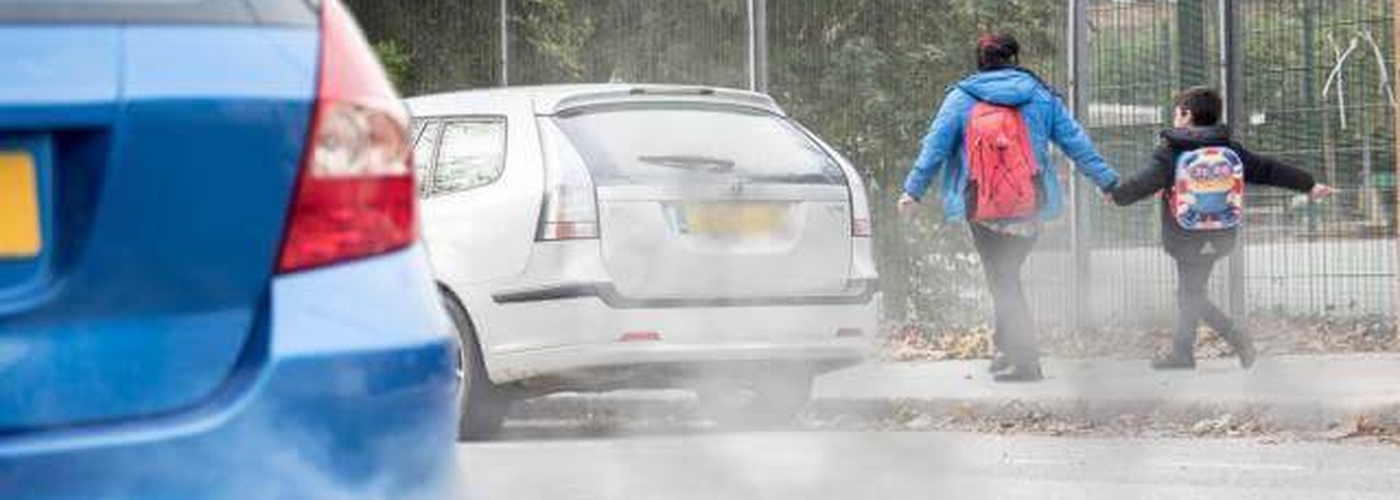Andrea Sandor explores the controversy of placing a car park next to a primary school
In Part 1 (here), I looked at the plethora of cheap car parks already available in the city centre and questioned whether adding an additional one next to a primary school is necessary, let alone ethical. While the site would be used as a 440-space car park for up to five years before being developed into mixed-use office and residential space, even a couple of years are significant in a child’s development.
Public bodies will have to answer difficult questions about why they have ignored the overwhelming evidence about the detrimental health impact of air pollution
In this article I look more closely at the impact of air pollution on children’s health and how campaigners, residents, businesses and lawyers are mobilising across the city in response to the plans.
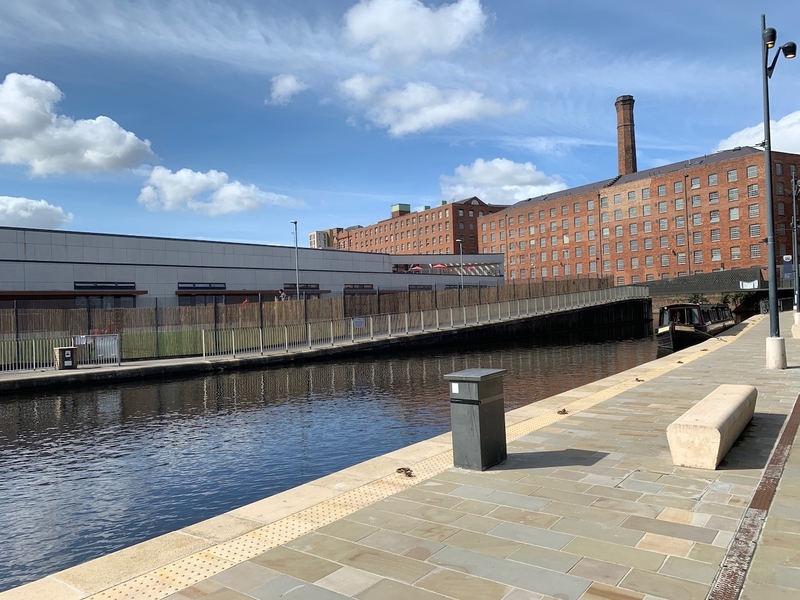
The impact of air pollution on the next generation
Manchester has a major air pollution problem. It has the highest rate of emergency admissions for asthma in the country, is the second-worst council area in England for particulate matter (more on this later) and has the most congested roads outside of London. In total, approximately 1,200 die each year in Greater Manchester due to air pollution.
We’re also learning more about how dirty air affects children. Not only is air pollution linked to asthma and respiratory problems, it also impacts lung size.
The Lancet published a study at the end of last year which found that children exposed to air pollution have significantly smaller lung capacity - a reduction of 5%.
Earlier this year, Channel 4’s Dispatches ran an investigation dedicated to the impact of air pollution on children’s health, in which Dr Benjamin Barratt of King's College London made it very clear that: “Living in a polluted area leads to smaller lungs, and you never recover that lung capacity.”
Apart from NO2, particulate matter is another significant contributor to air pollution. The Government’s Air Quality Expert Group claim particles from brake dust, tyre wear and road surface degradation are responsible for over 50% of road transport particulate pollution – meaning electric cars are harmful too. Microscopic plastics from tyre wear are inhaled, penetrating the bloodstream and entering the lungs and heart.
Dispatches also ran tests which showed the microscopic plastics in children’s lungs.
Studies also show particulate matter changes the structure of the heart and can increase the risk of heart attack. People in the UK are 64 times more likely to die from the effect of air pollution than people in Sweden, and more likely than people in America and Mexico to die due to dirty air.
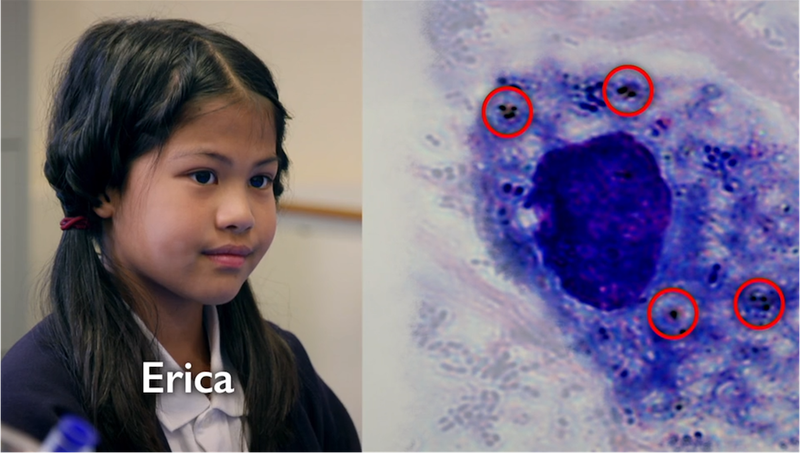
Central Government is coming under increasing scrutiny for their failure to take responsibility for this health epidemic - and it’s happening in the most heartbreaking way.
In 2013 nine-year-old Londoner Ella Kissi-Debrah died of an asthma attack. In the documentary, her mother says, “When they opened her up, the state of her lungs were appalling.”
The High Court has granted a new inquest into Ella’s death, following new evidence of the impact of air pollution on health.
Jocelyn Cockburn, a partner at the law firm Hodge Jones & Allen who represents Ella’s mother, told the Guardian: “A new inquest will … mean the government and other public bodies will have to answer difficult questions about why they have ignored the overwhelming evidence about the detrimental health impact of air pollution and allowed illegal levels to persist for more than a decade. There is now momentum for change and it is fundamental that air pollution is brought down to within lawful limits.”
It’s in the context of this ‘momentum for change’ that Manchester City Council proposes placing a car park next to a primary school. However, the tide is turning away from cars. Even right-wing think-tanks say fuel prices should rise to fight air pollution. Electric vehicles aren’t the sole solution because they produce particulate matter too. The message is clear: cities need fewer cars, not newer cars.
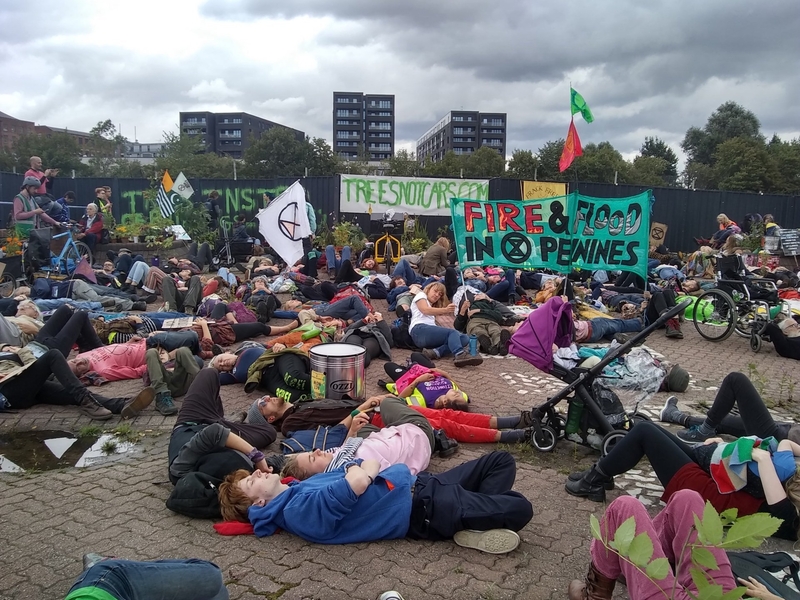
A groundswell of protest
Considering the detrimental impact of air pollution on children, it should come as no surprise that the Governing Body and leadership team at New Islington Free School have made a “strong” objection to the Council’s plans to use the site as a car park.
They object on several grounds, including “increased pollution levels affecting staff and pupil wellbeing” and “the detrimental impact on New Islington Free School pupils experiencing respiratory problems.” They also object due to “the negative messaging to our pupils who are being taught about the importance of tackling climate change and reducing carbon emissions but then witness Manchester City Council building a 440-space car park.”
It would seem the governors also feel the car park plans are inconsistent with the Council having declared a Climate Emergency.
All three ward councillors in Ancoats & Beswick have also objected. In her objection, Cllr Emma Taylor concludes: “Due to the number of objections I have received from local residents in regards to this planning application I am not able to support it.” She also notes “Ancoats and Beswick is now recognised as an extension of the city centre” and says, “I also hope that this land can be a green lung between the city centre and the communities of East Manchester”.
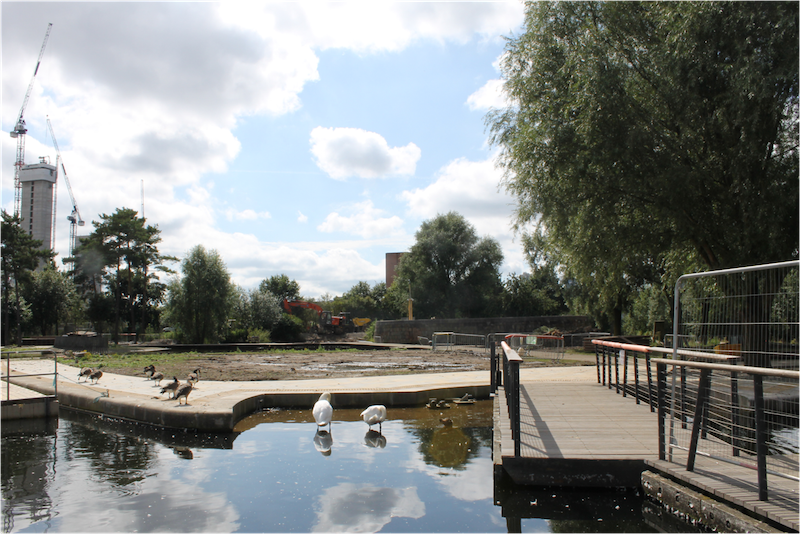
In response to the car park, a new campaign group Trees Not Cars has sprung up, successfully mobilising community groups across the city centre. Not only did the car park plans follow hot on the heels of the high profile Great Ancoats Street scandal of removing cycle lanes, it also coincided with cries to save community green spaces across Manchester; including Save New Islington Green, Save Ryebanks Fields, and Save Rockdove Gardens. However, the Council doesn’t seem to be listening.
Gemma Cameron is a lead campaigner behind Trees Not Cars. She was hospitalised two years ago for an asthma attack and is concerned the car park will increase air pollution. The group have launched a petition that’s garnered over 9,000 signatures. Analysis of postcodes show almost 1,200 signatures from Ancoats & Beswick ward, with over 4,400 from Manchester council areas, and almost 3,500 from other Greater Manchester boroughs, giving a strong indication of the strength of local feeling.
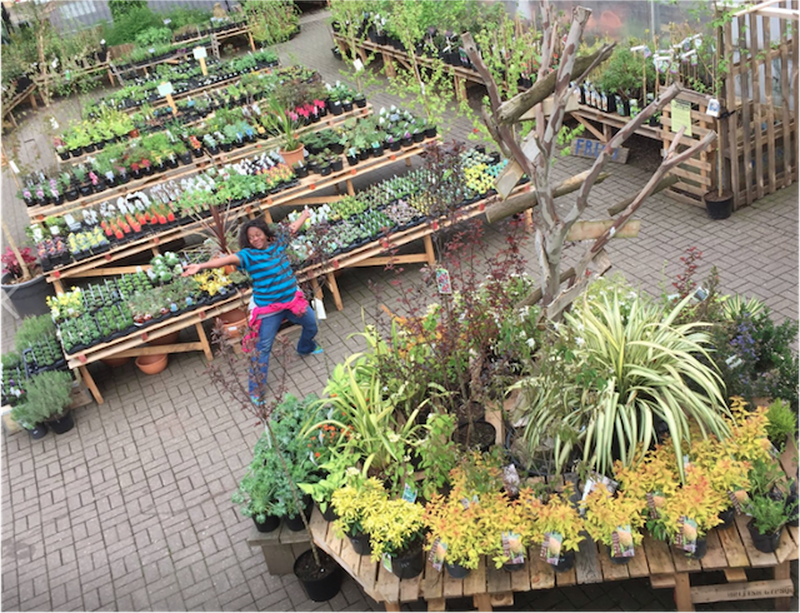
Stepping up
In 2013, Sir Richard Leese told Confidentials he felt one of the reasons for low voter turnout was because many behave as “consumers” rather than “citizens.”
In the context of austerity, he said “We’re saying that in our communities, if they’re going to survive and thrive, then the people in those communities are going to have to start taking more responsibility for themselves. We have to cut the dependency on the council, change the relationship between the council and the citizen.”
The Trees Not Cars campaigners are giving up every Saturday - and much more time besides - to go to Central Retail Park to plan the ‘People’s Park’ with ‘guerrilla gardener’ Chris Thody, who’s coming down from Bradford to work on the project. Thody says he can build an urban park for as little as £50k. A local business in Ancoats has already offered £15k towards it.
People are also willing to put down their hard earned pounds. Hulme Gardens has crowdfunded over £200k for their project, and The Save Ancoats Dispensary Campaign raised £370k - although sadly this wasn’t enough.
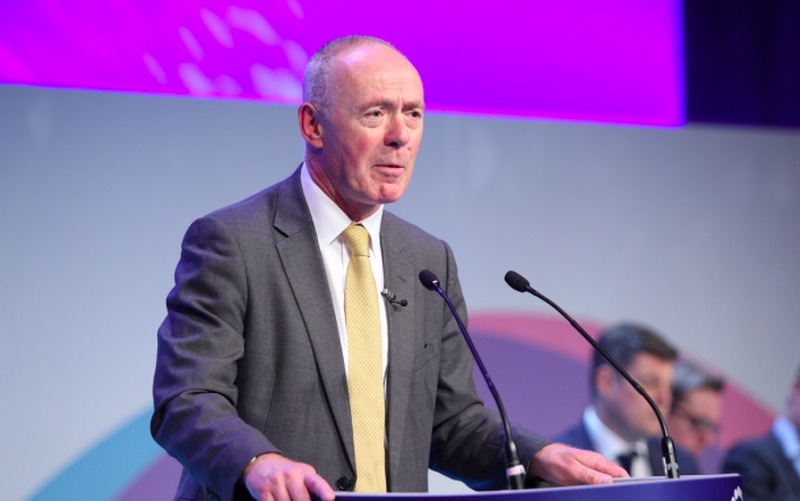
The Northern Quarter Forum is so concerned about the Council’s plans, they’re seeking legal advice. They’ve found a barrister who’s willing to work pro bono on a potential judicial review should the scheme pass planning. The challenge would be on grounds that the car park harms the health and human rights of those who live and work in the area.
People - residents, gardeners, businesses, lawyers - are stepping up. They’re not acting like “consumers” (if ever they were) but as active and engaged citizens.
The Council is still drawing up long-term plans for the site, which is why they don’t have a developer yet. They need to bring in citizens’ groups now - at the planning stage - to participate in the process. The campaign want to develop the site into community green space - in the long-term, to include social housing - and they have ideas about how to achieve this.
Times have changed. Increasing numbers of people are living in the city centre and doing so while breathing “lethal and illegal” levels of pollution in a Climate Emergency. They are active and engaged. Now the Council must step up too, work with the community, and exercise their duty of care for the next generation.
Follow Andrea Sandor on Twitter @wordstoseeby
The Council responds
We appreciate the strength of feeling that this issue has generated, but it must be stressed that this site was already the site of a car park when it operated as a commercial site. Furthermore, if used as a car park it would be for the shortest time possible, as we are working towards bringing forward the re-development of the site.
The development will be high density commercial and residential, and by developing on brownfield sites, future pressure to develop on green land will be reduced.
We need green spaces but we also need homes, jobs and public services. Turning all this into a park would cost tens of millions of pounds and would be at the expense of jobs, homes and services that would be generated when this land is developed. However, the Council’s approach is to require tree planting and green space in all our large scale regeneration plans.
That development aims to be zero carbon by 2028 and should of course contain high-quality green space.




